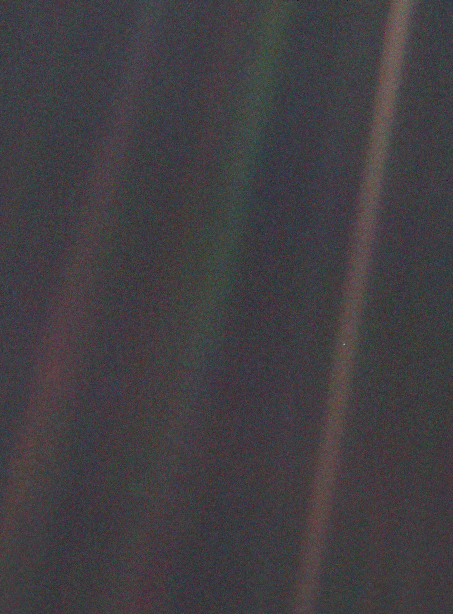There are a lot of books in the world. According to The Economist, since the 16-century invention of the printing press, there have been 160M books published. They tell you not to worry, though:
Don’t panic. These gloomy numbers suddenly look much better if you remember Sturgeon’s law, coined by an eponymous (and jaded) sci-fi author: “90% of everything is crap.” If you filter out the guff we reckon the average seven-year-old has plenty of time to get through a solid selection of fabulous books.
Oh, good. They explain that if you start now, you can read the the 1000 best books of all time, which they collected from 1000BooksToRead.com within the next 84 years.
This is if you read at the average readers' pace of 11 books per year. The pace is per their poll, which shows that 54% of people have read or listened to a book in the past year. I am a bit skeptical of these optimistic numbers. I don't know which Americans are reading 11 books per year or for 30 minutes per day. Surely not this American.
It is a bit unlikely to expect to read all 160M books in the world. I have probably read hundreds of books, if not over a thousand, but getting to even 10,000 seems extremely unlikely as it stands. Books are in good company in their numerousness. I will probably not see all 8.7M species, or the 5.5M different types of insect. I will know maybe 800 people by name of the nearly 17B1 that will exist during my life. If I meet 3 people per day, I will meet only 85,000 of those people.2 No worries, I am sure I will visit the all the planets in our solar system... there are only 8, right? I might get to the other 5,502 planets in the Milky Way Galaxy. I probably stand no chance to the 200,000,000,000 galaxies in the observable universe... not to mention anything we have yet to figure out how to observe.
Carl Sagan put it wisely:
The Earth is a very small stage in a vast cosmic arena. Think of the rivers of blood spilled by all those generals and emperors so that, in glory and triumph, they could become the momentary masters of a fraction of a dot. Think of the endless cruelties visited by the inhabitants of one corner of this pixel on the scarcely distinguishable inhabitants of some other corner, how frequent their misunderstandings, how eager they are to kill one another, how fervent their hatreds.
Our posturings, our imagined self-importance, the delusion that we have some privileged position in the Universe, are challenged by this point of pale light. Our planet is a lonely speck in the great enveloping cosmic dark. In our obscurity, in all this vastness, there is no hint that help will come from elsewhere to save us from ourselves.
But does Sagan come to the right conclusion? I do not think so. It is easy to say you are insignificant in the scale of the universe as a whole, comparing yourself to all existence. Books are significantly more tangible. Even if I spend every minute of my life reading, I will never be able to ingest every piece of fiction or non-fiction written down.
It has been said that astronomy is a humbling and character-building experience. There is perhaps no better demonstration of the folly of human conceits than this distant image of our tiny world. To me, it underscores our responsibility to deal more kindly with one another, and to preserve and cherish the pale blue dot, the only home we've ever known.
I do not think the insignificance of the human instructs us to cherish the pale blue dot. I think disrespecting the Earth and harming others does us no good, but I did not draw out this conclusion by observing on my own. I was instructed by Allah (SWT) that that is my responsibility.
وَإِذْ قَالَ رَبُّكَ لِلْمَلَـٰٓئِكَةِ إِنِّى جَاعِلٌۭ فِى ٱلْأَرْضِ خَلِيفَةًۭ ۖ قَالُوٓا۟ أَتَجْعَلُ فِيهَا مَن يُفْسِدُ فِيهَا وَيَسْفِكُ ٱلدِّمَآءَ وَنَحْنُ نُسَبِّحُ بِحَمْدِكَ وَنُقَدِّسُ لَكَ ۖ قَالَ إِنِّىٓ أَعْلَمُ مَا لَا تَعْلَمُونَ ٣٠
[Prophet], when your Lord told the angels, ‘I am putting a successor on earth,’ they said, ‘How can You put someone there who will cause damage and bloodshed, when we celebrate Your praise and proclaim Your holiness?’ but He said, ‘I know things you do not.’
Islam teaches us to live our lives in context. This context is something that I have been thinking about often recently. The context is not that we are insignificant, or that self-derived Enlightment values will come to rescue me. Humans are ultimately mostly irrelevant. Of all humans that have existed, only a few of them are widely known. Allah is not irrelevant, and nor is the permanence of the akhirah. While the existence of this life is short and brief, and gives us no chance to fathom everything, Muslims can take comfort in the knowledge that their responsibility is only to One. Follow what Allah says and what He revealed to His Messenger (PBUH) and your memory will not be left behind on the pale blue dot.
1 When I was born in 2002, 6.3B people were alive. Per the U.N., if I estimate my life will last 78 years, 10.6B will be born during my life. That means that over the course of my life, 16.9B people will exist.↩
2 78 * 3 * 365.↩


